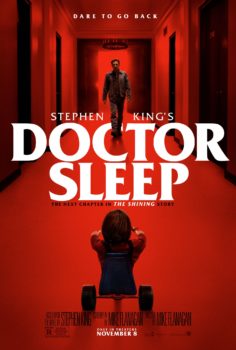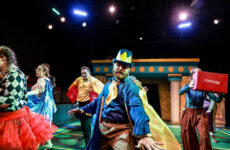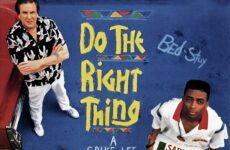 Stanley Kubrick’s famed 1980 adaptation of Stephen King’s “The Shining” has left an undeniable influence and legacy on horror filmmaking and remains one of the most iconic horror films of all times.
Stanley Kubrick’s famed 1980 adaptation of Stephen King’s “The Shining” has left an undeniable influence and legacy on horror filmmaking and remains one of the most iconic horror films of all times.
However, Stephen King himself has famously gone on record countless times to express his distaste for the film, describing his frustration due to it being “a film designed to hurt people.” He has stayed relatively firm on this stance in the years following the movie’s release. Now, with the release of a film adaptation of King’s sequel, “Doctor Sleep,” King said in an interview with Entertainment Weekly, “Everything that I ever disliked about the Kubrick version of The Shining is redeemed for me here.” There is one takeaway from this.
“Doctor Sleep” is a very different film from Stanley Kubrick’s “The Shining.”
“Doctor Sleep” is directed by Mike Flanagan (“Gerald’s Game”) and follows Dan Torrance as an adult decades after the traumatic happenings at the Overlook hotel.
Living in his father’s shadow, Dan is a recovering alcoholic struggling to gain his footing in life until he finds work as an orderly at a hospice, where he uses his “Shine” ability to help comfort dying patients as they struggle to cope with their approaching deaths.
His comfortable new life is interrupted as he meets Abra, a girl sharing similar abilities to Dan’s and who has become a target for the cult of the True Knot, a group that hunts down people with the “Shine,” or similar abilities in order to farm their abilities in order to prolong their lives. Dan must compartmentalize the demons from his past and come to accept his “Shine” as a part of him in order to project Abra from this looming threat.
There is much to praise about Doctor Sleep. For one, it manages to coherently tell a story that spans several years, if not several decades. Unfortunately, this is the movie’s biggest issue: pacing.
“Doctor Sleep” is not a short movie, clocking in at a runtime of 2 hours and 31 minutes. One might expect a movie of this length to drag, but that is not the film’s biggest issue.
The movie is never boring. Instead, the movie constantly jumps from scene to scene in order to fit everything the plot has to offer in a single movie. Scenes that would normally be extremely impactful suffer for this.
This is a shame, as the acting talent for the characters here is nothing short of excellent. Ewan McGregor perfectly plays the grown-up Danny Torrance with a layered and detailed performance, but is nearly out-shined by Rebecca Ferguson, who plays Rose the Hat, the leader of the cult of the True Knot. Her performance is charismatic, seductive, and terrifying. She plays perfectly off of every actor she interacts with, and gives one of the best performances for a villain in 2019.
It is truly unfortunate that the rapid clip of the movie lessens the impact of the characters, but even more disheartening is how it ends up failing the movie’s horror and tension. As a sequel to one of the most iconic and tense horror movies of all time, this is a massive disappointment. Granted, the plot here is much more fantastical than that of “The Shining,” but the subject matters of cults and true psychological trauma being toyed with here are ripe for tense and terrifying moments, which “Doctor Sleep” sorely lacks.
The real issue with “Doctor Sleep” comes in its climax, where the events of the film bring the characters back to the Overlook hotel. During this last stretch of the film a lot of unnecessary callbacks to Kubrick’s “The Shining” are shoved into sequence. This could almost be forgiven until it becomes due to the unavoidable recasting of Jack Torrance.
Moments from Kubrick’s film are completely reshot and recreated using entirely different actors, and it’s hugely distracting. One may wonder: why not use the original footage? Why not shoot the recreated scenes to obscure the faces of the actors? Or even better, why include those moments if they are mostly superfluous? It’s so distracting it nearly ruins what would otherwise be an excellent, exciting final act of the story.
There’s a lot to like about “Doctor Sleep,” like excellent performances and an interesting continuation of the story of “The Shining” that is bound to be surprising and satisfying to a lot of audiences.
Rapid pacing and unnecessary callbacks to Kubrick’s film end up detracting from what would otherwise be a great film. It’s not very often where it can be said that an already long movie would be better if it were longer.





Comments